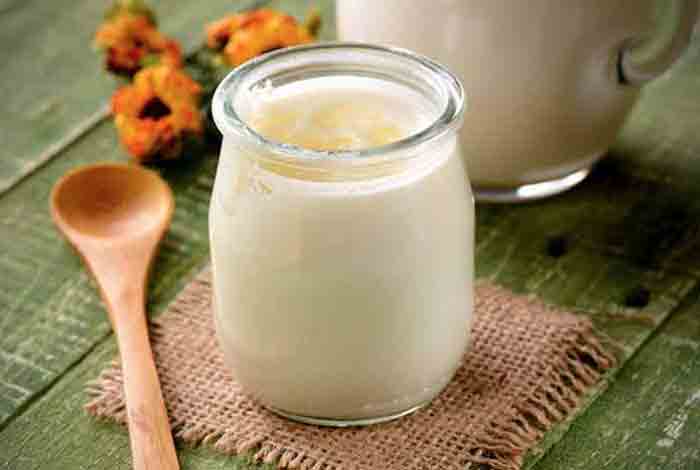
Kefir – A Natural Way to Lower High Blood Pressure

Kefir with its creamy texture and a little sour flavor, is becoming popular among the gourmands and the health enthusiasts. It is a fermented milk which is beneficial for health. Researchers are now studying on how it could prove beneficial in improving cardiovascular health.
It is a milk-based drink which is made by mixing kefir grains, which are white in color and obtained by fermentation of certain yeast and bacteria. This bio-process technique helps to obtain sour taste and creamy thickness.
The probiotic drink has many other benefits, particularly its effect on digestion and gut microbiome. We are now aware that besides improving digestion, our gut bacteria is helpful in many ways.
In a study, [1] which was done last year, it was found that people suffering from cardiovascular disease showed different constituents in gut microbiota as compared with healthy people.
How Probiotics Can Improve Your Gut Bacteria?
In another study published in Nature [2] revealed that a healthy gut microbiome can help reduce high blood pressure; though the biological mechanism by which it does this is not yet clear.
However, the related discovery guides the authors of the study to say that we might use probiotic supplements to prevent hypertension as they could promote healthy bacterial diversity.
An expert said that some probiotics can be developed that could possibly be used to fix some effects of salt-rich diet contributing to hypertension.
In a study, researchers at Auburn University, Alabama and the University of Vila Velha, Espirito Santo, Brazil, worked on a rat model to find whether properties of kefir’s probiotic would help improve gut health and aid in lowering the blood pressure.
How Kefir Influences Brain, Gut and Cardiovascular System?
To examine how a regular diet of kefir would affect the level of blood pressure, the researchers worked on three different group of rats:
- The first group of rats which suffered from high blood pressure, were made to drink kefir for 9 weeks regularly.
- The rates in the second group suffered from high blood pressure, but no kefir was given to them.
- The rates in the third group (control) did not suffer from high blood pressure and no kefir was given to them.
After 9 weeks, blood samples and stool were collected from three group of rats. It was investigated whether the changes had occurred or not in the gut microbiota of rats. They also tested for any toxins released by the bacteria.
Their blood pressure was also determined, and the researchers used immunofluorescence to study the neural changes patterns in hypothalamus. This brain region regulates blood pressure and some other important processes in our body.
Silva-Cutini and the fellow workers found the rats which were given kefir on a regular basis for 9 weeks showed reduced level of endotoxins. These substances are the by-product of bacterial decomposition and are harmful. Endotoxins are also partially responsible for inflammation in the body.
The same group of rats also exhibited reduced blood pressure with a better intestinal structure and reduced permeability, i.e., how easily a substance or microbe leaks into the system.
Another study showed that kefir-consuming rats had restored the balance of healthy gut bacteria. It was also found that the degree of inflammation in the central nervous system was also reduced.
The results show that the effect of kefir on the gut bacteria reflects the type of signals released by brain to whole body. Thus, an improved gut microbiome seems to influence brain to lower the blood pressure to normal levels.
The researchers concluded that antihypertensive-related mechanisms associated with kefir help in communication between gut microbiota and brain axis during high blood pressure.










